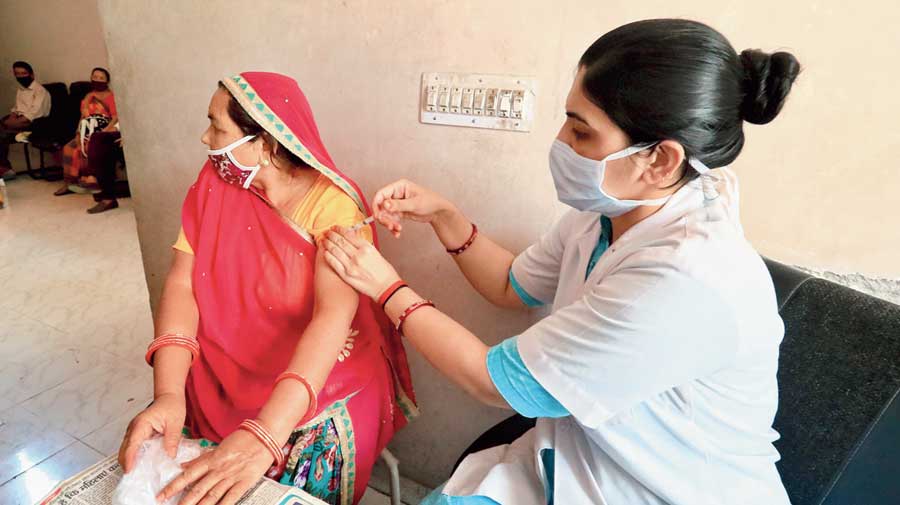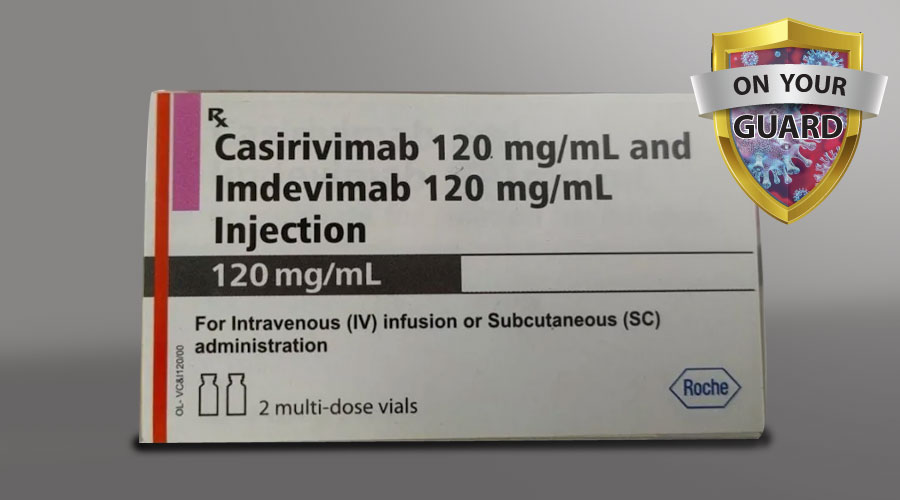Medical researchers have launched India’s first study to measure the real-world effectiveness of Covishield and Covaxin by documenting the vaccination status of Covid-19 patients admitted with severe disease at 11 sites across the country.
The study by the National Institute of Epidemiology (NIE), Chennai, a unit of the Indian Council of Medical Research (ICMR), will compare the vaccination status of 1,300 patients with severe Covid-19 and 2,600 people who test negative for Covid-19.
“If the vaccines are effective, we’d expect to find the proportion of unvaccinated people to be significantly higher in patients with severe disease than in people who test negative for Covid-19,” Tarun Bhatnagar, a senior scientist at the NIE and principal investigator of the study, told The Telegraph.
The fractions of those vaccinated among the 1,300 hospitalised patients and the 2,600 Covid-19 negative people will yield estimates of effectiveness.
For example, if 1,000 of the 1,300 with severe disease are unvaccinated and only 200 of the 2,600 negative controls are unvaccinated, that would imply vaccine efficacy. However, if 650 of the 1,300 with severe disease are unvaccinated and 1,300 of 2,600 negative controls are unvaccinated, that would mean there is no observed efficacy.
The NIE will collaborate with the All India Institutes of Medical Sciences in Delhi, Bhubaneswar, Jodhpur and Rishikesh and seven other hospitals in Chennai, Delhi, Kochi, Mysore, Nagpur, Puducherry, and Surat to recruit the study participants from different geographical regions.
The ICMR’s National Institute of Virology, Pune, will sequence the genomes of the viruses from the Covid-19 positive cases to analyse the effectiveness of vaccines against different variants of the virus circulating in India.
The study represents the first systematic effort to determine how well Covishield and Covaxin work in real-life conditions in India since the country launched its Covid-19 vaccination campaign in January.
The campaign had until Saturday administered over 184 million doses of Covishield, the AstraZeneca vaccine produced in India by the Serum Institute, and over 22 million doses of Covaxin, the homegrown vaccine from Bharat Biotech. Two doses are required for full protection.
“Real-life evaluation studies are overdue in India,” said Santanu Tripathi, a clinical pharmacologist and former professor at the Calcutta School of Tropical Medicine, who is not involved with the ICMR study.
Tripathi had proposed in January this year a study to monitor one million vaccine recipients over a six-month period that would help estimate what proportion among them may develop Covid-19 infection.
His proposal to Bengal’s health authorities had not evoked a favourable response, Tripathi said.
Clinical trials earlier had found Covishield 82 per cent efficacious in protecting people from the infection with a 12-week gap between doses, while Covaxin was 78 per cent efficacious with a four-week gap between doses. Both vaccines were found to be 100 per cent efficacious against severe disease.
But researchers underline that real-world effectiveness studies are critical to determine if efficacy observed in clinical trials in samples of volunteers under controlled conditions are replicated through population-based studies after millions of people have received doses.
“Clinical trials assess efficacy, they probe the question; does it work? Effectiveness is performance in the real world. We’re asking the question: did it work?” Bhatnagar said.
“Through our study, we will be able to get numbers for the effectiveness in terms of percentages.”
Researchers say real-world effectiveness may deviate from clinical trial results as subtle variations in individuals’ responses to vaccines that remain undetectable in clinical trial samples may show up when large numbers of people are vaccinated.
The emergence of variants with mutations that allow the virus to escape certain immune responses is another reason for assessing real-world effectiveness of vaccines. Genome studies have suggested that a variant designated B.1.617 with such mutations has likely contributed to India’s second Covid-19 wave.
Health authorities in the UK have found that two doses of AstraZeneca vaccine were 60 per cent effective against symptomatic disease from the B.1.617 variant compared to 66 per cent effectiveness against B.1.1.7, a fast-spreading variant first detected in the UK.
Bengal study
Bengal’s health department is preparing for an independent assessment of the vaccines through a study of around 500 patients with severe Covid-19 admitted over a seven-day period in five Calcutta hospitals.
The Calcutta study, also proposed by Tripathi, will involve documenting the vaccination status of all these hospitalised Covid-19 patients and assess its association with disease severity or fatality, compared to those unvaccinated.
The five sites are the Infectious Diseases and Beliaghata General Hospital, RG Kar Medical College Hospital, Medical College Hospital, Calcutta, MR Bangur Hospital and the Chittaranjan Cancer Research Institute.
The study also seeks to provide an audit of treatment practices, especially the use of steroids and oxygen, and vaccination status of the patients with severe Covid-19.
“We’ll be able to estimate rates of breakthrough infections in vaccinated people and compare the course of their disease and severity with infections in unvaccinated people,” Tripathi said.












